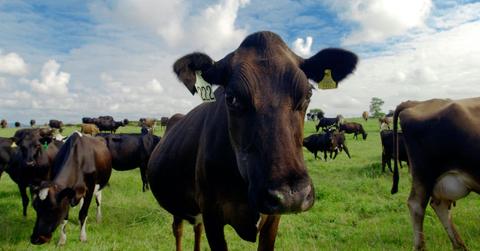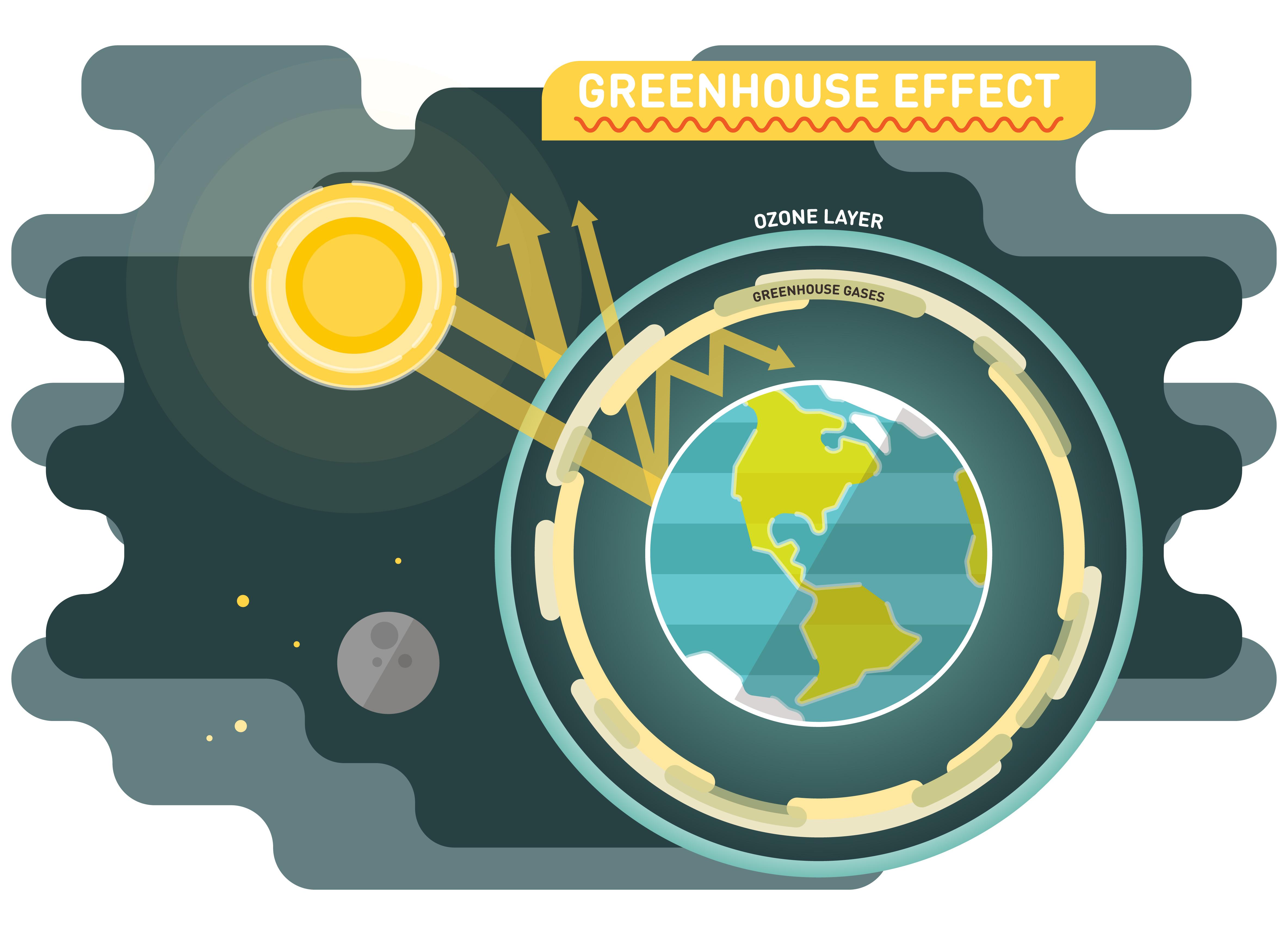Why the Greenhouse Effect Is Important: How It Works and Causes Global Warming
The greenhouse effect is why so many of the things we do are hurting the planet.
Updated Oct. 21 2019, 4:51 p.m. ET

The more I research the climate crisis as an adult, the more I wish I had paid better attention in science class as a child. Case in point: My teachers definitely taught me about the greenhouse effect, but I don’t remember what we learned at all. (I mostly just remember making dioramas out of shoeboxes.)
Back then, I had no idea just how important the science we were learning about the environment really was — not only in terms of my grades (don’t worry, I still did well in science class thanks to those dioramas), but also in terms of the future of humanity. Luckily, I’ve since woken up to that fact and started paying attention to science — and I’ve learned that one of the most important concepts to understand in this fight to protect the climate is the greenhouse effect.
Read on for all the basics you need to know about the greenhouse effect, how it causes global warming, and what we can do to reduce our impact in terms of emitting greenhouse gases.
How Does the Greenhouse Effect Work?
The greenhouse effect is the natural process of the sun warming the Earth’s surface. Greenhouse gases in the atmosphere (primarily carbon dioxide, methane, nitrous oxide, ozone, and water vapor) trap the sun’s heat and cause the global temperature to rise, otherwise known as global warming.
Why Is It Called the Greenhouse Effect?
This process is called the greenhouse effect because it echoes what happens in a greenhouse used to grow plants in the winter. The sun enters the greenhouse during the day, and the glass walls trap the sun’s heat, which warms up the air inside the greenhouse, even keeping the greenhouse warm overnight when the sun is down and outside temperatures are low.
Why Is the Greenhouse Effect Important?
The greenhouse effect is the reason our global temperature is rising — and global warming is a significant part of the climate crisis. The more greenhouse gases we emit, the more heat we trap in the atmosphere, the more the globe warms up. As global temperatures rise, we witness changes in ecosystems all over the Earth. For example, ice caps are melting, sea levels are rising, and oceans are warming — all of these changes affect animal habitats and put various species at risk of becoming endangered or extinct.
Why Is the Greenhouse Effect Harmful?

As you can gather from the above information, the greenhouse effect is harmful to so many different ecosystems on our planet. As humans continue doing activities that put greenhouse gases into the atmosphere — such as burning fossil fuels, producing trash, and raising livestock — the greenhouse effect continues to make our Earth a little less inhabitable for us.
What Greenhouse Gases Are Produced by Humans?
According to the U.S. Congress’ ACS, the greenhouse gases in our atmosphere that occur both naturally and due to human activity include carbon dioxide, methane, nitrous oxide, ozone, and water vapor. Then, there are the fluorinated gases (such as chlorofluorocarbons or CFCs), which are greenhouse gases that do not occur naturally and are only caused by human activity, as per ACS.
Greenhouse gases do occur on their own from a few natural processes on Earth that we cannot help — for example, natural matter decaying and respiration. But if those were the only things causing greenhouse gases to enter our atmosphere, we wouldn’t be in a climate crisis.
That said, most greenhouse gas emissions come from human activities — and the sharp increase in these activities is what has gotten us into the climate emergency we are currently in. The activities we do that are responsible for the most significant greenhouse gas emissions include burning fossil fuels, animal agriculture (which is responsible for at least 14.5 percent of human-caused greenhouse gas emissions, according to the New York Times), clearing land for agriculture, and more, as per the EPA.
Which Greenhouse Gas Is the Worst?
According to the IPCC via the EPA, in 2014, the global breakdown of greenhouse gas emissions was as follows: carbon dioxide from fossil fuels, 65 percent; carbon dioxide from forestry and agriculture, 11 percent; methane, 16 percent; nitrous oxide, 6 percent; fluorinated gases, 2 percent.
While methane is notably a smaller percentage than carbon dioxide, methane is still of immense concern because it is more potent than CO2 — according to a study published on ScienceDaily, methane is actually about 30 times more potent at trapping heat in the atmosphere than CO2 is.
How to Reduce Our Greenhouse Gas Emissions
There are so many ways to reduce the amount of greenhouse gas emissions that you are responsible for. Check out our guides to reducing your carbon footprint and energy use at home; our guide to lowering your single-use plastic use and going zero waste; and our guide to transitioning to a plant-based diet, since animal agriculuture is responsible for 14.5 percent of human-induced greenhouse gas emissions.